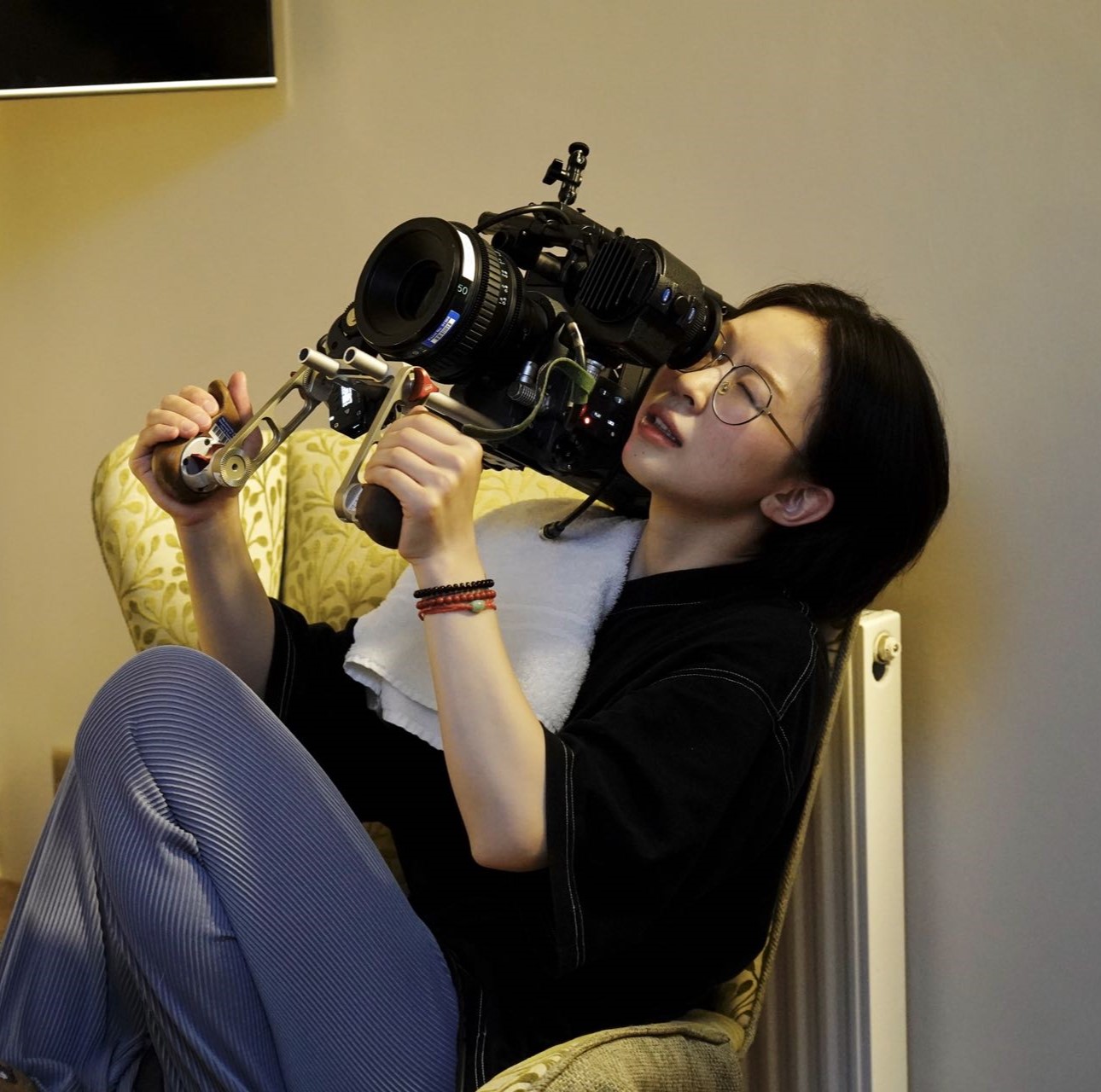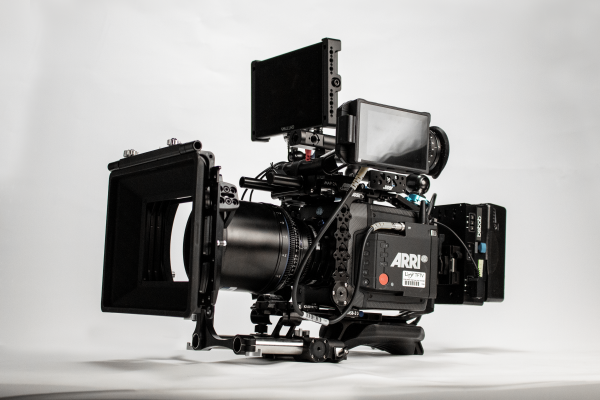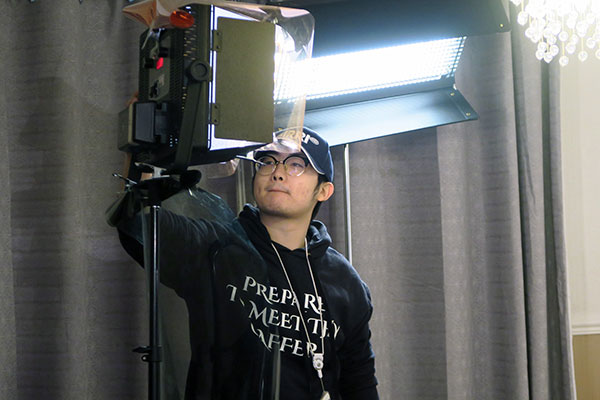
Visual storytelling: train for a career in film and television
Year of entry: 2024 (September)
Join us online or in person to find out more about postgraduate study at York.
Upcoming eventsVisualise and create stories for screen. Combine art and science, theory and practice to explore all aspects of cinematography for single-camera film and television production.
While learning the technical, practical and aesthetic principles of lighting and camerawork, you'll work with industry-standard equipment, in our creative and supportive environment. You’ll gain theoretical and technical experience and will develop and shoot your own project to high professional standards.
We'll teach you through a mix of workshops, lectures, screenings and masterclasses with leading academics and industry professionals. Our focus on practical group projects, with hands-on work, will prepare you for a career collaborating with others on set and on location.
You'll develop essential expertise for meeting the challenges of a career in film and television. Our graduates have gone on to roles in British and European film industries, and in film, TV and commercial production in China, Latin America and the Middle East.

This course is industry recognised by ScreenSkills, the industry-led skills body for the UK's screen-based industries, and carries the ScreenSkills Select quality-mark which indicates courses best suited to prepare students for a career in the screen industries. The accreditation means that our students learn professional skills on courses approved and supported by the industry; and it gives access to various schemes, eg internships and traineeships with the BBC, ITV and other broadcasters, as well as independent production companies in British film and television.
Bringing together world-leading researchers, dynamic teachers and industry professionals in a vibrant community.
Experience industry-standard training and creative practice, and use the latest professional kit to advance your skills for your future career.
From lighting theory and design, and camera technology and operation, to studio and location production methods including grips and electrics, you'll develop your skills in cinematography.
You'll study the practical, creative and business aspects of production for film and television. Our modules cover essential critical analysis, and you'll gain a greater understanding of the theory behind composition, lighting and making creative choices.
As you learn the cinematographer's role in creating screen-based stories for factual or fictional productions, you'll advance your knowledge of the industry and collaborate with others to develop and shoot projects. Group work is an essential experience for the production process, enhancing your communication, problem-solving, project and resource management skills.
You'll also be able to follow your creative interests and ambition with your individual project over the summer and vacation, worth a third of the course credits.
You’ll study 5 core modules, including an extended individual project over the Summer period.
Our modules will give you an aesthetic and technical grounding in visual storytelling, for both fiction and non-fiction productions, developed with the skilled use of our ARRI, RED and Sony camera systems on your core Digital Cinematography I and II modules. All our modules stress the importance of creative and technical collaboration within the creative process, and provide you with opportunities to work closely with like-minded students developing original content.
You will also study one option module each semester.
The options available to you will be confirmed later in the year. For further information please get in touch.
Our modules may change to reflect the latest academic thinking and expertise of our staff, and in line with Department/School academic planning.
The course culminates in the design and development of individual piece of work and accompanying report. It's the most important and also the most challenging part of the course.
You may choose from two different types of individual project:
1) A production project that involves creating a short film or pilot television episode – either fiction or nonfiction – along with a written 6,000 word production report describing your approach to making the project in your role as a cinematographer. You can work either individually or collaboratively with other students on this type of project.
2) An individual research project focusing on a specific area related directly to your chosen specialism. This could take the form of a traditional written dissertation of 6,500 words or a hybrid involving the creation of some sort of artefact such as video, audio or written elements based on your research, along with a 6,000 word written dissertation describing the project.
In all cases, the precise nature of the project undertaken, including the involvement of any group members or other collaborators, will be agreed with your academic supervisor prior to the start of the project.
Every course at York is built on a distinctive set of learning outcomes. These will give you a clear understanding of what you will be able to accomplish at the end of the course and help you explain what you can offer employers. Our academics identify the knowledge, skills, and experiences you'll need upon graduation and then design the course to get you there.

I am a postgraduate student studying television and filmmaking production with cinematography at York University. The year at TFTI offered us a wealth of practical opportunities and has created unparalleled memories. We became masters of cinematography, with cameras and lights sculpting the art of light and shadow. Recently, my independent documentary film was officially selected by several film festivals under the editing guidance of the editing tutor. Gradually I have found my career goal during this year of study.
Yu Wang (Yvonne), MA Film and Television Production with Cinematography
| Study mode | UK (home) | International and EU |
|---|---|---|
| Full-time (1 year) | £12,480 | £29,400 |
Students on a Student Visa are not currently permitted to study part-time at York.
UK (home) or international fees? The level of fee that you will be asked to pay depends on whether you're classed as a UK (home) or international student. Check your fee status.
Find out more information about tuition fees and how to pay them.
Discover your funding options to help with tuition fees and living costs.
We'll confirm more funding opportunities for students joining us in 2024/25 throughout the year.
If you've successfully completed an undergraduate degree at York you could be eligible for a 10% Masters fee discount.
You can use our living costs guide to help plan your budget. It covers additional costs that are not included in your tuition fee such as expenses for accommodation and study materials.
You'll have the chance to work collaboratively with other students from all our film and TV Masters courses. Group project work will develop your skills to prepare you for an industry where you will often work with others to achieve your creative vision.
You’ll work with world‐leading academics who’ll challenge you to think independently and excel in all that you do. Our approach to teaching will provide you with the knowledge, opportunities, and support you need to grow and succeed in a global workplace.
The course involves a range of different teaching styles. Most modules will include lectures to give you a fundamental understanding of the subject and then lead on to practical work. The practical work will primarily involve workshops where you can become familiar with industry techniques and equipment, including lighting, grips and cameras. You may also attend film screenings.
You'll also have the opportunity to attend events such as talks, productions and festivals outside of your modules.
You'll be assigned a member of our teaching staff who will act as your personal supervisor for the duration of the course. They are there to give advice on academic matters as well as other areas of University life.
The equipment and facilities available are the highest quality found in professional film and programme making.
You'll have access to various camera systems from ARRI, RED and Sony, as well as Angenieux, Zeiss, Sony, RED, Sigma and Samyang lenses; industry-standard lighting, grips and sound equipment from the likes of ARRI, Kino-Flo, Sachtler, Ronford-Baker, O'Connor, Manfrotto, Sound Devices, AKG, etc.; as well as fully equipped sound stages, rehearsal rooms, TV studios, green screen stages, dressing rooms, props store and workshop, and picture and sound finishing suites (including Foley and ADR).
You'll also have 24/7 access to a postproduction suite exclusively for our postgraduate students.
You will be based at the School of Arts and Creative Technologies on Campus East.
Most of your contact hours will be here, with some additional teaching elsewhere on Campus East.
Our beautiful green campus offers a student-friendly setting in which to live and study, within easy reach of the action in the city centre. It's easy to get around campus - everything is within walking or pedalling distance, or you can always use the fast and frequent bus service.
You'll be assessed throughout your course. Some modules have an early assessment that contributes a small amount to your final mark and gives an opportunity to check your progress.
Types of assessment vary depending on the module and may include the following:


A large number of our graduates have made striking progress in their careers since completing their course. There’s a wide variety of possible career paths open to you after completing this MA, both across industry and academia. While you train to be a professional in television and film you'll also develop skills that are useful in any industry.
| Typical offer | |
|---|---|
| Undergraduate degree | 2:1 or equivalent, and evidence of professional experience or a commitment to film making. If you hold a qualification below 2:1 or equivalent, relevant prior experience of an appropriate nature, may be considered. |
| International pre-masters programme | Pre-masters from our International Pathway College |
| Other international qualifications | Equivalent qualifications from your country |
You will need to submit a sample of your creative work with your application. Please see our guidance on submitting creative work.
If English isn't your first language you may need to provide evidence of your English language ability. We accept the following qualifications:
| Minimum requirement | |
|---|---|
| IELTS (Academic and Indicator) | 6.5, minimum 6.0 in each component |
| Cambridge CEFR | B2 First: 176, with 169 in each component |
| Oxford ELLT | 7, minimum of 6 in each component |
| Duolingo | 120, minimum 105 in all other components |
| LanguageCert SELT | B2 with 33/50 in each component |
| LanguageCert Academic | 70 with a minimum of 65 in each component |
| KITE | 459-494, with 426-458 in all other components |
| Skills for English | B2: Merit overall, with Pass with Merit in each component |
| PTE Academic | 61, minimum 55 in each component |
| TOEFL | 87, minimum of 21 in each component |
| Trinity ISE III | Merit in all requirements |
For more information see our postgraduate English language requirements.
You may be eligible for one of our pre-sessional English language courses. These courses will provide you with the level of English needed to meet the conditions of your offer.
The length of course you need to take depends on your current English language test scores and how much you need to improve to reach our English language requirements.
After you've accepted your offer to study at York, we'll confirm which pre-sessional course you should apply to via You@York.
Get in touch if you have any questions



We offer a range of campus accommodation to suit you and your budget, from economy to premium.

Explore campus and city life and hear what our current students have to say about living here.

Lively, full of culture and beautiful, York is regularly voted one of the best places to live and visit in the UK.

Find out more about York. Chat to staff and students and take the tour, on campus or online.